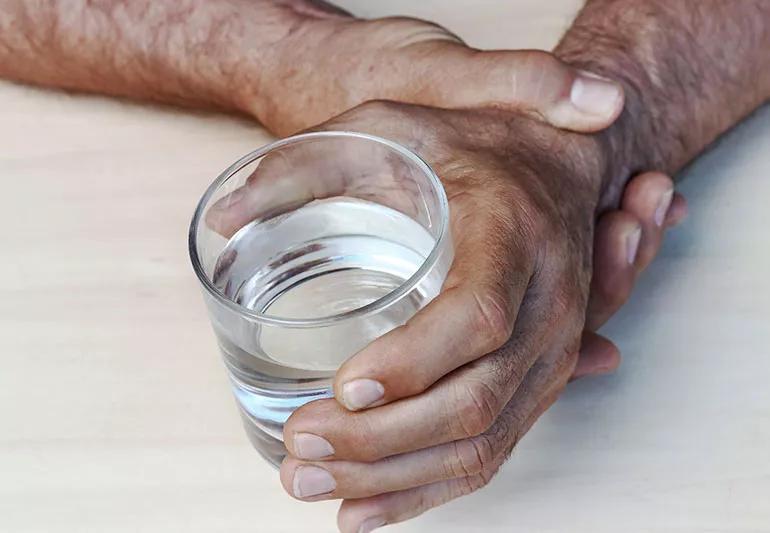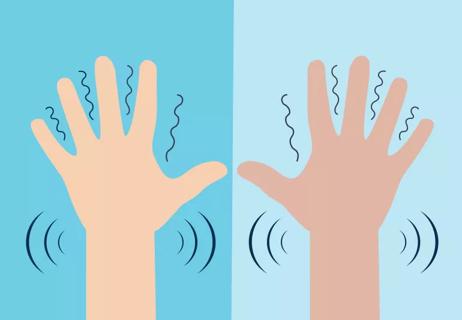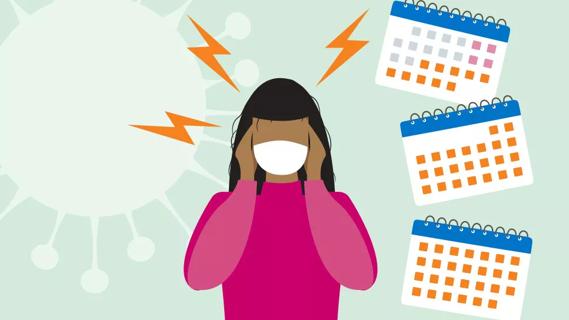Tremors don’t always mean Parkinson’s disease

You’re anxious and nervous about that much-anticipated presentation. You can’t go a day without your beloved cup of coffee. Your blood sugar took a plunge. All of these can cause “the shakes,” aka tremors, those involuntary shaking movements that can affect any part of your body.
Cleveland Clinic is a non-profit academic medical center. Advertising on our site helps support our mission. We do not endorse non-Cleveland Clinic products or services. Policy
Though tremors are quite common, your mind can quickly go into panic mode. Could this be Parkinson’s disease?
“Though Parkinson’s disease is what people often think of when they have tremors, there are actually many other causes,” says neurologist Zoltan Mari, MD. “Of all of the patients I see with tremors, perhaps the most common tremor is exaggerated (or enhanced) physiological tremor and then essential tremor and not Parkinson’s disease.”
Dr. Mari answers the most frequently asked tremor-related questions.
You can have a hard time writing or holding a spoon still. Your voice could be shaky and your tremor could even get worse if you’re stressed. It’s easiest to figure out what’s not causing your tremors by gradually eliminating all the possibilities.
Do you drink a lot of caffeine or alcohol? Try cutting back. Are you taking a new medication or you’re dealing with a stressful situation at home, work or school? It can even coincide with times when you’ve skipped a meal.
Tremor can also occur with high level of thyroid hormone. Many medications may cause tremor as a side effect.
“All of these have to be considered so one can make the right diagnosis,” says Dr. Mari.
Besides the most common tremor, exaggerated physiological tremor and the second most common tremor diagnosis, essential tremor (ET), there are many other tremulous disorders and causes of tremor.
“Depending on the diagnosis, treatment can include oral medications that either calm the muscles causing the tremors or treat the part of the brain that’s causing them,” he says. “In certain cases, botulinum toxin injections can be helpful, depending on exactly which body parts and muscles are primarily affected by tremor. For tremors that are resistant to all other treatments, some advanced brain procedures are also available to suppress tremors.”
Tremors frequently accompany anxiety and nervousness.
“That’s why I always conduct a thorough mental health and emotional evaluation to rule out anxiety in patients with tremors,” says Dr. Mari. “Medication or therapy can be an effective treatment.”
Sometimes, tremors can be the result of conversion disorder, a mental health condition affecting the nervous system that can cause intermittent neurological symptoms with no clear medical cause. Psychotherapy can help treat this disorder, including cognitive-behavioral therapy and biofeedback.
In Parkinson’s disease (PD), tremors tend to come on slowly and insidiously. Often times it is difficult to even remember exactly when they appeared for the first time.
As a chronic and neurodegenerative illness, PD progresses gradually. Initially, tremors usually occur only on one side of a body in Parkinson’s disease and most commonly affects the fingers, hands, and somewhat less commonly the feet, jaw, chin, lips, and even less commonly other body parts such as the neck. Tremor in the head and neck, especially when that is the first body part affected by tremor, is almost never a sign of Parkinson’s and thus is usually from other tremor causes or diseases.
“Every tremor provides important clinical signs,” says Dr. Mari. “In essential tremor, we see tremor with activity, therefore it is a so-called ‘action tremor’. Exaggerated physiological tremor is also a form of action tremor. In PD, we typically see tremor at rest, thus we call it ‘resting tremor’. PD also causes slowness of movement, muscle stiffness, and balance problems, while ET is mostly just the tremor, without the other symptoms of PD.”
Depending on the kind of tremor (or how severe) it is, delaying medical evaluation could be detrimental.
“See a neurologist specializing in movement disorders and who can properly evaluate, diagnose, and treat tremors,” he says. “Part of that could be eliminating factors that can drive exaggerated physiological tremor, such as high thyroid hormone levels, so thyroid function tests (TFTs) should be sent off to the lab, for example.”
Then, your doctor will do a thorough review of what medications you’re on and when you started or changed the dose of any of those to eliminate a drug-induced tremor, which is also common. The initial evaluation and assessment with a doctor is crucial.
Learn more about our editorial process.

What to watch for and when to seek help

Why seeing a neurologist can save you time and money

Eating mindfully, sipping water and chewing slowly can help your brain catch up with your stomach

Seizure symptoms can go far beyond convulsions and may include feelings of déjà vu, temporary confusion and unusual movements

They can feel like a typical headache or a migraine headache, but the pain can last for weeks to months

It’s always a good idea to let a healthcare provider know about any back pain you’re experiencing, especially if it results from trauma or persists longer than three months

It’s all about the amount — try to stick to 100 to 150 milligrams a day to reduce and prevent a pounding, throbbing head

Even one drink can have an impact on your cognitive function leading to slurred speech, blurred vision and impaired memory

Your metabolism may torch 1,300 to 2,000 calories daily with no activity

A gentle touch in all the right places may help drain your sinuses